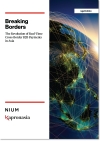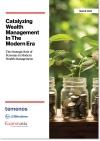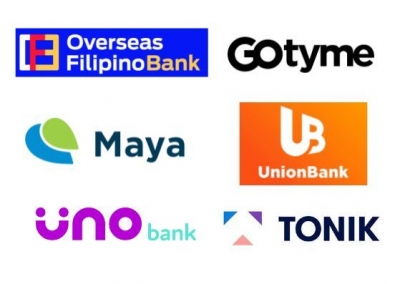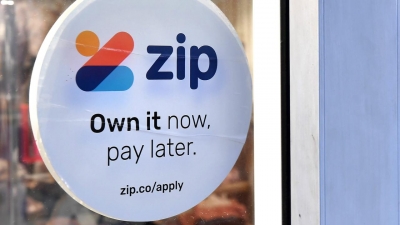Latest Insight
- Why cash is still prevalent in Asia
- Japan steps up green finance efforts
- South Korea charts middle path on crypto
- Should Grab and GoTo merge?
- Singapore pushes ahead with fintech-driven sustainability
- Digital banks in South Korea continue to thrive
- Billease is the rare profitable BNPL firm
- Fintech sector in Pakistan faces mounting challenges
- Where digital banks in Asia can make a difference
- Cashless payments jump in Vietnam
Latest Reports
-
Breaking Borders
 Despite progress in payment systems, the absence of a unified, cross-border Real-Time Payments (RTP) network means that intermediaries play a crucial role in facilitating connectivity. This report examines the ongoing complexities, challenges, and initiatives in creating a seamless payment landscape across Asia. Innovate to Elevate
Despite progress in payment systems, the absence of a unified, cross-border Real-Time Payments (RTP) network means that intermediaries play a crucial role in facilitating connectivity. This report examines the ongoing complexities, challenges, and initiatives in creating a seamless payment landscape across Asia. Innovate to Elevate In the dynamic and diverse financial landscape of the Asia-Pacific (APAC) region, banks are at a pivotal juncture, facing the twin imperatives of innovation and resilience to meet evolving consumer expectations and navigate digital disruption. Catalyzing Wealth Management In The Modern Era
In the dynamic and diverse financial landscape of the Asia-Pacific (APAC) region, banks are at a pivotal juncture, facing the twin imperatives of innovation and resilience to meet evolving consumer expectations and navigate digital disruption. Catalyzing Wealth Management In The Modern Era Hyper-personalized wealth management presents a paradigm shift from traditional models relying on static, generalized segments. Developing tailored investor personas based on psychographics, behaviours and fluid financial goals enables financial institutions to deliver rich and tailored customer experiences that resonate with next-generation priorities.
Hyper-personalized wealth management presents a paradigm shift from traditional models relying on static, generalized segments. Developing tailored investor personas based on psychographics, behaviours and fluid financial goals enables financial institutions to deliver rich and tailored customer experiences that resonate with next-generation priorities.
Events
| April 23, 2024 - April 25, 2024 Money 2020 Asia 2024 |
| October 21, 2024 - October 24, 2024 Sibos Beijing |
| November 06, 2024 - November 08, 2024 Singapore Fintech Festival |
While U.S.-China tensions are heated in many areas, it appears that the two countries want to keep the bilateral relationship on an even keel when it comes to the financial services sector. Despite the sensitive politics on both sides of the conversation, the two countries have, for now, reached an agreement that should reduce the chance of a large-scale delisting of Chinese companies from U.S. stock exchanges.
Indonesia is the most important market for Alibaba in Southeast Asia and arguably its most important market outside of China, period. Increasingly, Alibaba is focused on Indonesia’s burgeoning digital financial services market. Yet Alibaba recognized early on that it would be impossible to replicate the Alipay model outside of China and instead chose to take strategic stakes in various Indonesian fintech firms or companies with financial services arms.
No country likes to end up on the Financial Action Task Force’s (FATF) grey list. It means that FATF has determined a country’s anti-money laundering (AML) and/or counterterrorism financing (CFT) controls are somewhat deficient. It could be worse – they have a black list too – but that is reserved for the likes of North Korea. The Philippines has been on the FATF grey list since June 2021 and is hoping to exit by January 2023. But it will not be an easy task given persistent concerns about the country’s Bank Secrecy Law, inadequate regulation of the casino gaming sector and seeming reluctance to use the law to fight financial crime more aggressively.
We cannot think of a single Asian market where the arrival of digital banks has upended the competitive landscape. That’s not to say that digital lenders cannot put pressure on incumbents, especially to up their digital game and do something about that clunky legacy IT infrastructure. It is just that getting people to switch banks is much harder than doing the same for say, ride-hailing or food-delivery apps. With the arrival of digital banks in Malaysia, most incumbent lenders will feel some pressure, and consolidation may be in some of their interests, but the big players are unlikely to lose significant market share.
It has been a long time since we heard anything from Dana, the Indonesian Ant Group-backed e-wallet. In the past few years as many big Asian tech firms have invested in incumbent Indonesian banks, intending to refashion them as digital lenders, standalone e-wallets, lacking banking licenses, have been at a disadvantage. Yet Dana may be able to carve out a niche within the ecosystem of Alibaba and the local conglomerate Sinar Mas following the purchase by Lazada of US$304.5 million worth of its shares from existing shareholder Emtek Group and its receipt of a fresh US$250 million investment from Sinar Mas.
Despite being recent arrivals to the Philippine financial services market and not having – at least for the most part – a large deposit base yet, the country’s digital banks are shaking up the market, prompting major fintechs without banking licenses and traditional lenders alike to step up their game. The Philippine central bank recently greenlighted one more digital bank, GoTyme, to start its operations while both UNObank Inc. and Aboitiz-led UnionDigital Bank Inc. started commercial operations last month.
Can you think of any Western fintech firms that are dominant in Asia Pacific? Somewhat dominant? Neither can we. That may be because the region has no shortage of homegrown fintech options, especially in the ultra-competitive payments segment. That is not deterring Stripe though. As one of the most valuable startups in history, the U.S. payments giant thinks big, and sees significant market opportunities across the APAC region, including through strategic partnerships.
We have heard a lot about Chinese companies potentially delisting en masse from the U.S.’s capital markets. Without an eleventh-hour deal between the US and China, that may be inevitable. The paramount long-term trend, however, is where they will go in the first place to raise capital internationally. Hong Kong is the most obvious choice, but there are also options in Europe thanks to the establishment of stock connect programs. To that end, with the launch of the China-Switzerland Stock Connect four Chinese companies have listed on the Six Swiss Exchange.
U.S.-China financial decoupling has been happening in slow motion and sometimes appears to be leveling off, allowing some observers to stay optimistic. In reality, however, it will not be easy for American and Chinese regulators to agree on a deal that allows Chinese firms to remain listed on U.S. stock exchanges. With that in mind, Alibaba recently announced it will pursue a primary listing in Hong Kong.
Looking at the recent earnings statement of Australia’s Zip, we have to give the company credit for being able to put a positive spin on a troubled story. As a buy now, pay later (BNPL) firm that overextended itself, Zip now faces double trouble: a problematic business model and resources that are stretched too thin. But the fourth fiscal quarter earnings statement (April to June) highlights Zip’s revenue rising 27% year-on-year to AU$160.1 million and a 20% increase in transaction volume. Losses, however, represented 2.7% of the value of transactions.
More...
South Korea’s Toss Bank is experiencing exponential growth amid strong demand for digital financial services and weak digital offerings from incumbent lenders. From the time of its launch in October 2021 through the end of June, online bank had opened 3.6 million accounts. Toss has added 2.5 million accounts this year, a pace of growth that more than doubles its first three months of operation, when it signed up 1.1 million customers. Further, Toss’s loan books have reached 4 trillion won.
The government crackdown on China’s tech sector has had many far-reaching effects, among the most consequential the reorientation of the country’s capital markets ecosystem away from consumer-facing platform companies and towards a state-guided deal pipeline focused on strategic industries. E-commerce, fintech, ride hailing and home sharing are out, while advanced manufacturing, artificial intelligence, 5G telecommunications and renewable energy are in. Big-ticket mainland IPOs are becoming more common, especially with the advent of the Shanghai STAR board, China’s answer to the Nasdaq.
Japan’s Rakuten first announced plans for an initial public offering of its online banking unit in September 2021 amid fierce competition with Amazon and as it faced steep costs from building a mobile network. 10 months later, the Japanese platform company said that it had applied to list its online banking unit on the Tokyo Stock Exchange. It has not yet, however, given any specific guidance as to when the IPO will occur.
The demise of yet another Australian neobank brings to mind Queen’s hit 1980 song, “Another One Bites the Dust.” With the abrupt collapse of Volt, which said in late June it would cease operations and return AU$100 million in customer deposits after failing to raise AU$200 million, the Australian neobanking experiment’s last chance for success is Judo, which listed on ASX last year and has reached profitability. Otherwise, now both Xinja and Volt have collapsed, while 86 400 was acquired by National Australia Bank (NAB) in early 2021.
Hong Kong is battling a surge in financial crime committed both online and by telephone. The uptick in fraudulent activity coincided with the city’s worst Covid-19 surge, which occurred in the first quarter of this year. At the time, Hongkongers were largely confined to their apartments; the economy was in its worst state of the pandemic, shrinking by 4%, and the government imposed especially harsh measures to slow the spread of the hyper-infectious omicron variant. These conditions led to higher unemployment and greater desperation in the population, making some people easy prey for fraudsters.















